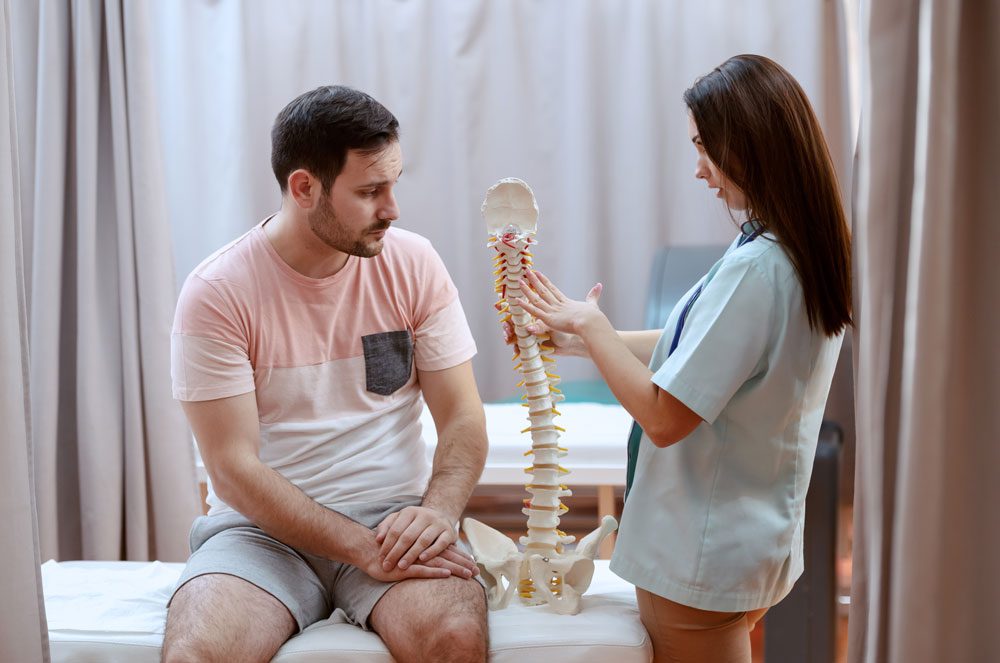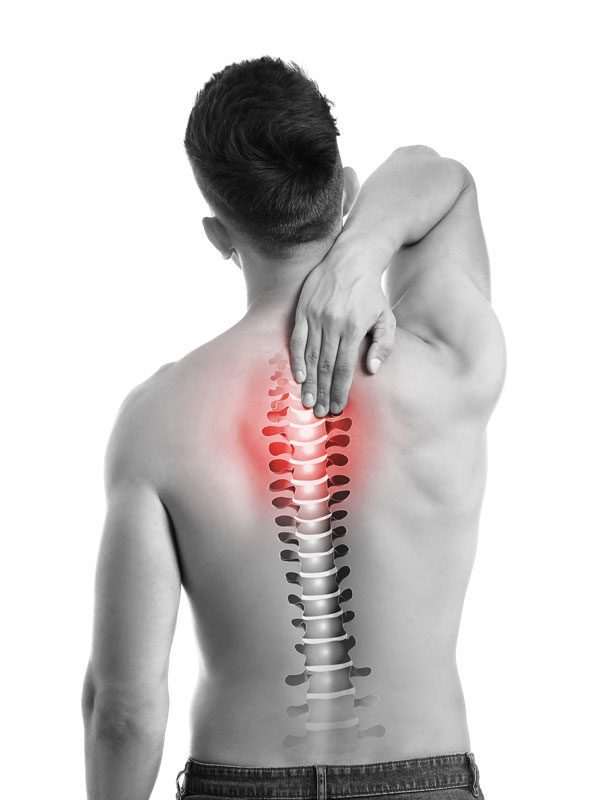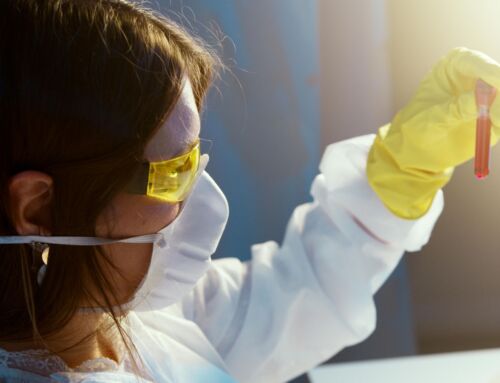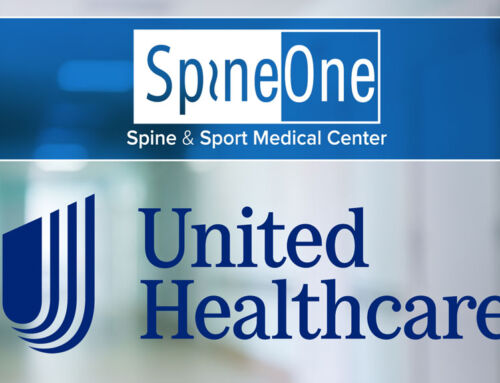Mechanical Pain vs. Chemical Pain – Which do I Have?
How Will a Doctor Determine the Type of Back Pain I Have?
Suddenly you’ve got back pain. Maybe you took a fall playing basketball. Maybe you lifted something and felt a pull. Maybe you had an accident. Or maybe there was no clear inciting incident and your back just hurts. Not only is back pain among the most common medical issues we all face, it’s also exceptionally stressful and worrisome. Is my back pain just an injury, or a sign of something more severe? How can I know the difference?
Mechanical Pain vs. Chemical Pain – Which do I Have?
How Will a Doctor Determine the Type of Back Pain I Have?
Suddenly you’ve got back pain. Maybe you took a fall playing basketball. Maybe you lifted something and felt a pull. Maybe you had an accident. Or maybe there was no clear inciting incident and your back just hurts. Not only is back pain among the most common medical issues we all face, it’s also exceptionally stressful and worrisome. Is my back pain just an injury, or a sign of something more severe? How can I know the difference?
The causes of back pain are many, but the most common reasons include:
- Muscle or ligament strain (usually from heavy listing or a sudden awkward movement).
- Damage to the discs that act as cushions in your spine bulges, herniations, or prolapses that put pressure on the nerves and spinal cord.
- Sciatica, which is when the sciatic nerve becomes irritated, compressed, or inflamed causing pain in your leg or foot.
- Osteoarthritis causing pain, stiffness, and swelling in spinal joints.
- Spinal stenosis, which is a degenerative condition that can cause the spaces within the spine to narrow and compress the spinal nerves.
One of the first steps in reaching an accurate diagnosis and developing a treatment plan is determining if your pain is mechanical or chemical in nature. Your doctor will discuss your medical history and the details of your pain to help determine if you’re suffering from mechanical pain or chemical pain, and determine an ongoing treatment plan.
But what is the difference between mechanical and chemical pain, and how will that determination influence your treatment options?
Mechanical Pain
Mechanical pain happens when stress is placed on the bones, discs, or nerves in your spine. The anatomical space for these structures is very limited, so any abnormality in the structure of your spine will put pressure on sensitive areas and result in pain. If the pain comes and goes, or changes when you bend a certain way, or stand up, then the pain is mechanical.
Mechanical back pain doesn’t necessarily result purely from the structures in the spine. Imbalance or instability in the musculoskeletal systems of the back, core, and hips can also cause mechanical pain. If one aspect of the musculoskeletal structure suffers from a lack of stability, the other areas may become stronger to compensate. This in a nutshell is the nature of muscle imbalance. Mechanical pain being this multifaceted is why your doctor will ask a lot of questions about your history, behavior, and the specifics of your pain before ordering diagnostic imaging to confirm a diagnosis.
Chemical Pain
The presentation of chemical pain in the spine is rooted in inflammation. A ruptured disc will inflame the surrounding tissue and put pressure on the spine. Loss of cartilage causes bone spurs and swelling. These types of reactions cause pain at the source, and additional pain as structures within the spine are subject to abnormal pressure.
Unlike the predictable nature of mechanical pain, chemical pain is not specific to a particular movement. Some movements will aggravate the pain, but the pain endures once the movement stops. With chemical pain, often no movement or relaxation will make the pain fully abate.
Pain of a chemical origin will not get better unless the initial inflammation or chemical reaction in the body is addressed.
Treatment of Chemical Pain and Mechanical Pain
Same Day Appointments Available
Mechanical pain only responds to a mechanical treatment – change of position or movement. Mechanical treatment is targeted to a specific joint or tissue to change the current mechanical position or property of that tissue. For example, a shoulder dislocation requires morphine. But if you are able to relocate the shoulder, 90% of the pain is resolved because the mechanical stress is removed.
Chemical pain responds well to more targeted medical care, such as anti-inflammatory treatments, radiofrequency ablation, and spinal cord stimulation. These treatments either reduce inflammation or alter the injury’s ability to transmit pain signals to the nervous system.

Given the multifaceted issue of diagnosing and treating mechanical or chemical pain, it’s imperative to have a multidisciplinary doctor who has the expertise and tools on hand to address the various causes and presentations of pain. Choose a comprehensive medical center rather than visiting multiple specialists on different occasions for pain relief, physical therapy, diagnostic imaging, and minimally-invasive procedures. SpineOne offers same day appointments for most of our procedures.




